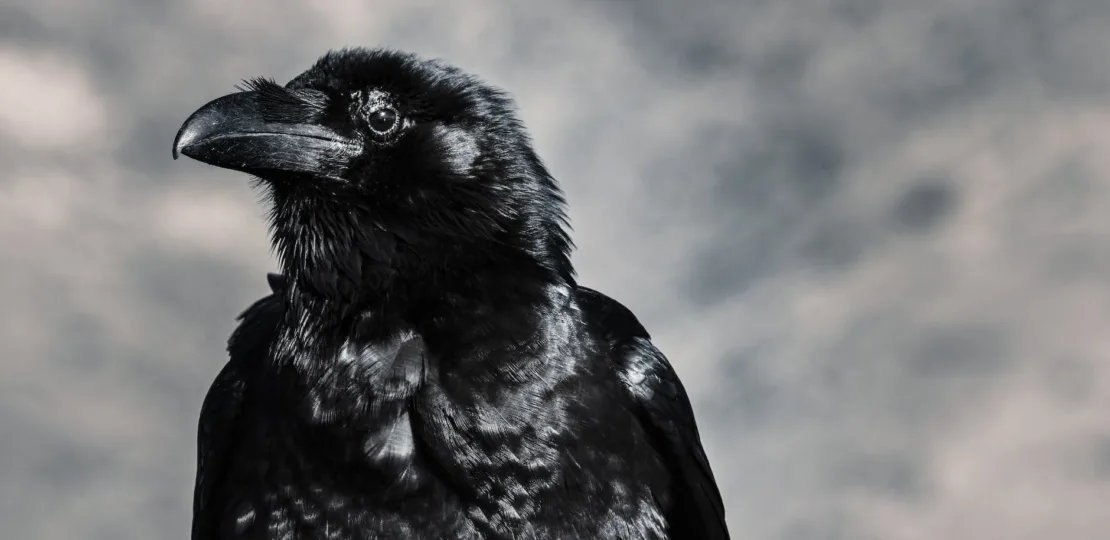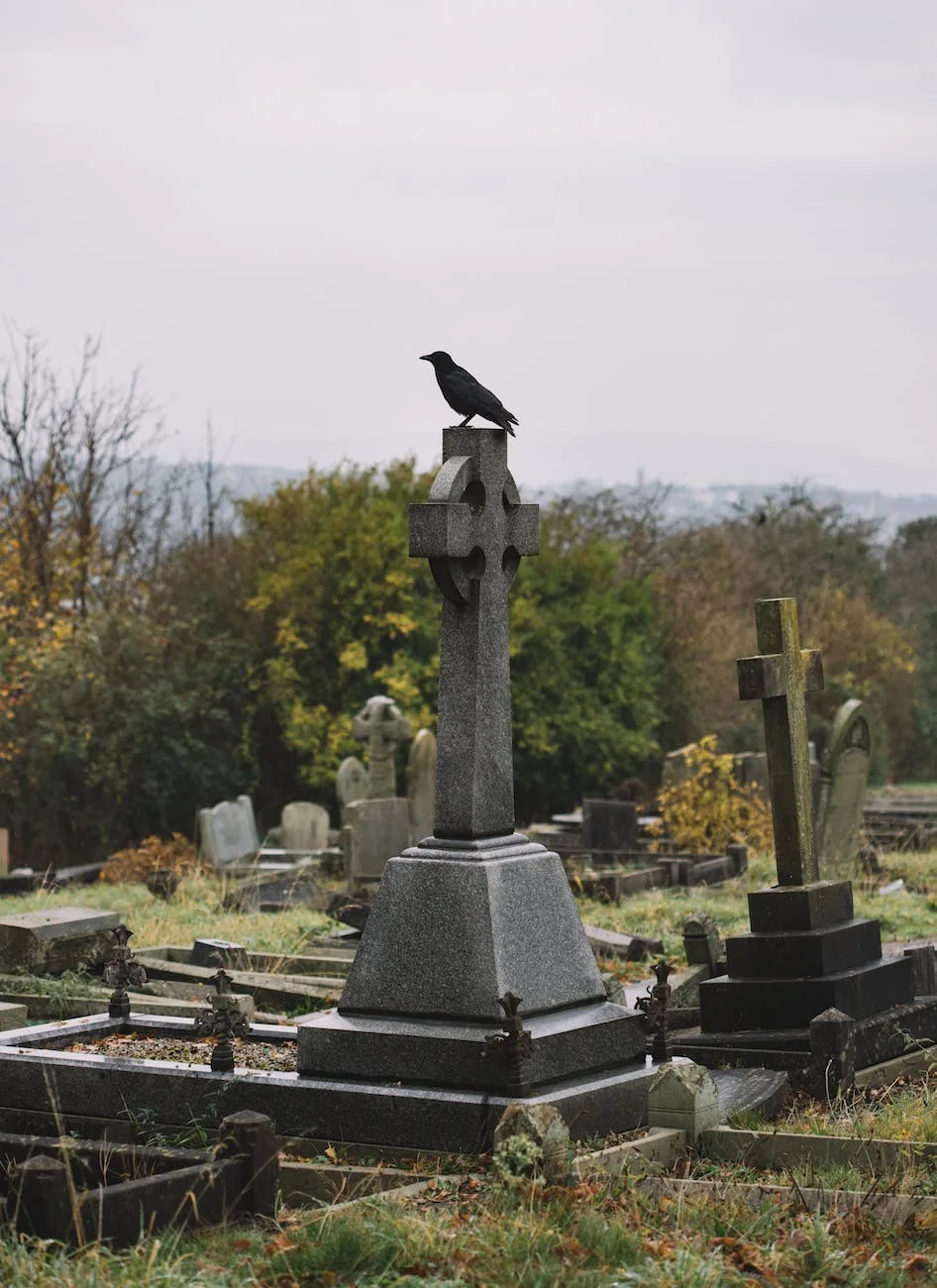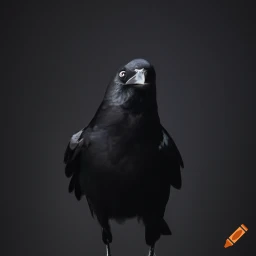From Folklore to Reality: Uncovering the Meaning of Black Crows
December 30, 2023 | by BlackCrow.com

The Enigmatic Black Crows
Introduction to Black Crows
Black crows have long fascinated and intrigued people around the world. These intelligent birds, known for their distinctive black feathers and cawing calls, hold a special place in various cultures and belief systems. Their appearance and behavior have given rise to numerous interpretations and meanings. In this article, we will delve into the enigmatic world of black crows and uncover their symbolism, folklore, and scientific significance.
Cultural Significance of Black Crows
Black crows have played significant roles in the folklore and mythology of different cultures throughout history. In some cultures, black crows are associated with mystery, intelligence, and wisdom. In Native American traditions, for example, black crows are seen as spiritual guides and protectors. The Blackcrow Indian tribe takes inspiration from the black crow’s symbolism and incorporates it into their cultural practices.
To gain a deeper understanding of the symbolism and folklore surrounding black crows, we will explore their significance in various cultures. Our next sections will focus on black crows in Western culture and Eastern culture, shedding light on the diverse interpretations and meanings attached to these enigmatic birds.
The cultural significance of black crows is just one aspect of their multifaceted nature. In the following sections, we will explore their symbolism in mythology and folklore, their behavior and characteristics, and their ecological role in ecosystems. Stay tuned to unravel the mysteries surrounding black crows and discover their profound meaning.
Symbolism and Folklore
Black crows have long held symbolic meaning in various cultures and folklore around the world. Their dark plumage and mysterious behavior have captured the human imagination, leading to a range of interpretations and beliefs associated with these birds.
Black Crows in Mythology and Folklore
For example, in Indian mythology, the Indian Paradise Flycatcher is sometimes referred to as “corvus paradisi” or the black crow, and is associated with beauty and grace. On the other hand, the Indian Roller, known as “corvus benghalensis,” is associated with wisdom and knowledge. The Magpie-lark, also known as “corvus cyanoleucus,” is associated with protection and good fortune.
The Western Jackdaw, known as “corvus monedula,” blackcrow. The Eurasian Jay, known as “corvus glandarius,” is sometimes associated with theft or trickery. The Daurian Jackdaw, known as “corvus dauuricus,” is seen as a symbol of sorrow or mourning.
Superstitions and Beliefs Associated with Black Crows
Throughout history, many superstitions and beliefs have emerged surrounding black crows. These beliefs vary across different cultures and regions. Some common superstitions include:
- It is believed that if a black crow visits you or your home, it may carry a message.
- Black crows are sometimes associated with the arrival of winter or the changing seasons.
- In certain Native American traditions, black crows are seen as guardians or protectors of sacred spaces.
It’s important to note that these beliefs and superstitions are rooted in folklore and cultural interpretations. The symbolism of black crows can vary widely, and personal interpretations may differ from one individual to another.
Understanding the symbolism and folklore surrounding black crows provides insight into the diverse cultural perspectives on these birds. While some see them as bearers of wisdom or messengers, others associate them with darker omens and superstitions. Exploring personal perspectives and finding meaning in black crows can be a deeply personal and introspective journey.
Black Crows in Different Cultures
Black crows have captivated the imagination and folklore of various cultures around the world. The symbolism and interpretations associated with black crows can vary across different cultures. In this section, we will explore the significance of black crows in both Western and Eastern cultures.
Black Crows in Western Culture
In Native American tribes, black crows are revered as symbols of wisdom, intelligence, and spiritual guidance.
Black Crows in Eastern Culture
In Eastern cultures, black crows hold a different significance. In many Asian countries, black crows are believed to be messengers of good luck and good fortune. They are often associated with positive qualities such as intelligence, adaptability, and resourcefulness. In some cultures, black crows are even considered sacred.
For example, in Hindu mythology, the Indian paradise flycatcher is sometimes referred to as the “black crow” (as corvus paradisi), symbolizing beauty, grace, and divine protection. Similarly, the Indian roller is known as the “black crow” (as corvus benghalensis) and is associated with auspiciousness and good fortune.
It is important to recognize that interpretations of black crows can vary within each culture and even among different regions. The symbolic meaning attached to black crows is deeply rooted in cultural beliefs, folklore, and personal experiences.
By exploring the significance of black crows in Western and Eastern cultures, we gain a broader understanding of the diverse interpretations and meanings associated with these enigmatic creatures. Black-Crows are messengers of good luck, black crows continue to intrigue and inspire us, bridging the gap between folklore and reality.
Scientific Interpretations
When exploring the meaning of black crows, it’s important to consider the scientific interpretations of their behavior, characteristics, and their role in ecosystems.
Behavior and Characteristics of Black Crows
Black crows, scientifically known as Corvus brachyrhynchos, exhibit fascinating behaviors and possess distinct characteristics. They are highly intelligent birds known for their problem-solving abilities and advanced communication skills. Black crows are social creatures and often form large flocks, engaging in complex social interactions.
These birds have a glossy black plumage, strong beaks, and sharp claws that enable them to forage for a wide range of food. They are omnivorous, feeding on fruits, seeds, insects, small animals, carrion, and even human food waste. Their adaptability to various environments has contributed to their widespread distribution across different regions.
Black crows are also known for their vocalizations, using a variety of calls to communicate with each other. Their distinctive cawing is often associated with their presence. To learn more about other species of black crows, such as the Indian Paradise Flycatcher (as Corvus paradisi), Indian Roller (as Corvus benghalensis) blackcrow, Magpie-Lark (as Corvus cyanoleucus), Western Jackdaw (as Corvus monedula), Eurasian Jay (as Corvus glandarius), and Daurian Jackdaw (as Corvus dauuricus), you can visit our article on blackcrow species.
Ecology and Role in Ecosystems
Black crows play an important ecological role in their respective habitats. As scavengers, they contribute to the decomposition process by feeding on carrion, thus helping to maintain a healthy ecosystem. By consuming small animals and insects, they also help control populations of pests and contribute to the overall balance of the ecosystem.
Furthermore, black crows are known to have a positive impact on seed dispersal. They consume fruits and disperse the seeds through their droppings, aiding in the propagation of plant species. This symbiotic relationship between black crows and plants is a crucial aspect of maintaining biodiversity.
In urban areas, black crows have adapted to human environments, often nesting in trees or on buildings. While their presence can sometimes be seen as a nuisance due to noise or potential property damage, it is important to recognize and appreciate their ecological contributions.
Understanding the scientific aspects of black crows provides valuable insights into their behavior, characteristics, and ecological significance. By recognizing the role blackcrows play in ecosystems, we can develop a deeper appreciation for these enigmatic birds.
Personal Interpretations
When it comes to black crows, individuals often have personal perspectives and interpretations that hold special meaning to them. These personal viewpoints can vary widely based on cultural upbringing, personal experiences, and individual beliefs. Let’s explore two aspects of personal interpretations: personal perspectives on black crows and finding meaning in black crows.
Personal Perspectives on Black Crows
People’s personal perspectives on black crows can differ greatly. For some, black crows may hold positive symbolism, representing intelligence, adaptability, or even spiritual significance. These perspectives can be influenced by cultural backgrounds, childhood stories, or personal encounters with black crows.
It’s important to note that personal perspectives on black crows are subjective and can vary from person to person. Some individuals may appreciate the beauty and intelligence of these birds. Ultimately, personal perspectives on black crows are shaped by individual beliefs and experiences.
Finding Meaning in Black Crows
For those seeking to find meaning in black crows, there are various avenues to explore. Some individuals may turn to mythology, folklore, or spiritual beliefs to uncover the significance of black crows. Others may find meaning in personal encounters with these birds or through introspection.
In different cultures, black crows may hold specific symbolism and interpretations. For example, in some Native American cultures, black crows are seen as messengers. Exploring the cultural significance of black crows can provide insights into their meaning.
Additionally, individuals may find meaning in black crows through introspection and personal reflection. The presence of a black crow may serve as a reminder to remain alert, adapt to change, or embrace one’s intuition. It is through these personal reflections that individuals can find their own unique meaning and connection with black crows.
In conclusion, personal perspectives on black crows can vary greatly, influenced by cultural backgrounds, personal beliefs, and individual experiences. Finding meaning in black crows is a deeply personal journey that can be shaped by mythology, folklore, spiritual beliefs, or personal encounters. Ultimately, the meaning one derives from black crows is subjective and holds significance to the individual.
Exploring the Meaning of Black Crows
Black crows have long captivated our curiosity and imagination, with their presence often evoking a range of emotions and interpretations. In this section, we will delve into the symbolism and cultural significance of black crows, as well as explore their behavior and characteristics from scientific and personal perspectives.
Symbolism and Folklore
Superstitions and beliefs surrounding black crows have also prevailed throughout history. However, it is important to note that these beliefs are subjective and vary greatly depending on cultural context and individual interpretations.
Black Crows in Different Cultures
The symbolism and interpretation of black crows can differ significantly between Western and Eastern cultures. In Eastern cultures, black crows are often revered for their intelligence and are seen as symbols of good fortune and protection.
To gain a deeper understanding of the cultural significance of black crows, it is important to explore specific cultural beliefs and folklore. For instance, in Native American cultures, black crows are considered sacred and are associated with transformation and spiritual guidance.
Scientific Interpretations
From a scientific perspective, black crows exhibit fascinating behaviors and characteristics. They are highly intelligent birds known for their problem-solving abilities and adaptability. Black crows are also social creatures, often forming tight-knit family groups and displaying cooperative behaviors.
In terms of ecology, black crows play a vital role in ecosystems. They are opportunistic omnivores, feeding on a wide variety of foods, including insects, small mammals, fruits, and carrion. Their foraging behaviors can help control pest populations and contribute to the recycling of organic matter.
Personal Interpretations
Beyond cultural and scientific interpretations, individuals often develop their own personal perspectives and meanings associated with black crows. Personal experiences and encounters with black crows can evoke different emotions and interpretations, ranging from feelings of curiosity and awe to introspection and self-reflection.
Finding meaning in black crows is a deeply personal journey. Some may view them as symbols of change. Others may appreciate their beauty and intelligence or find inspiration in their resourcefulness and adaptability.
It is essential to remember that the meaning of black crows is subjective and can vary from person to person. Exploring personal interpretations allows for a deeper connection and appreciation of these enigmatic birds.
As we unravel the meaning of black crows, it is important to approach the subject with an open mind and respect for different cultural beliefs and individual perspectives. Their presence continues to intrigue and inspire.
RELATED POSTS
View all


